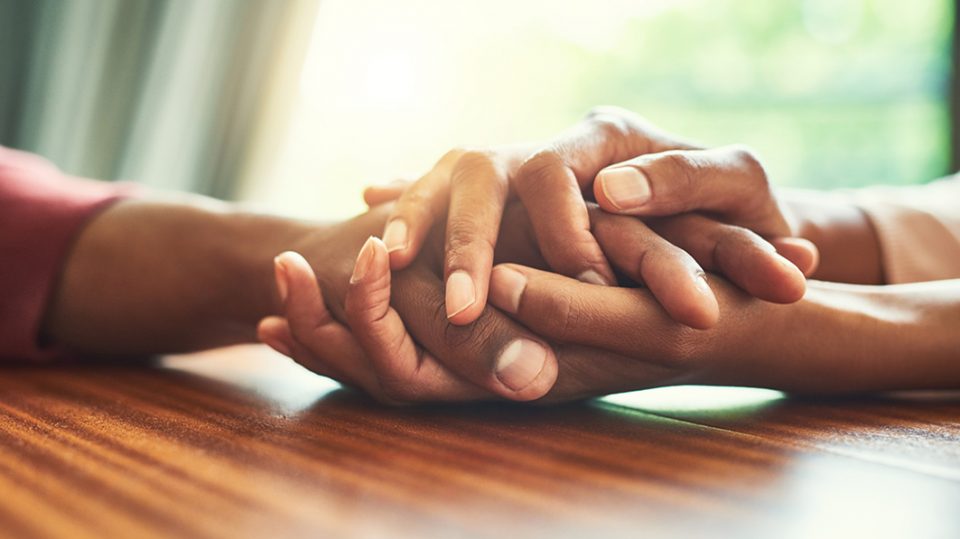by Dave Smallen Ph.D.
Studies show that responsiveness benefits relationships and personal well-being.
KEY POINTS
- We experience responsiveness when we feel understood, validated, and cared for by others.
- Perceiving people in our lives as responsive has been shown by numerous studies to benefit both relationships and personal well-being.
- Unfortunately, it can be challenging to communicate understanding, validation, and care because we all perceive social interactions differently.
In the world of relationship science, a growing trove of studies shows how a specific kind of experience between two people is crucial for satisfying relationships and individual moments of human connection. Researchers refer to this experience as responsiveness.
Consider the following scenario related to me by a recent study participant:
I have been struggling and have had many hard times emotionally due to my anxiety the last few weeks…The other night [my husband] called me on his way home from work and I just broke down in tears and explained how I needed him more than ever right now…He listened to everything I was saying. He validated my feelings and told me he understood. He made me feel like he got it. It brought me comfort just knowing he was hearing my feelings…
She describes a near textbook example of responsiveness. When you feel understood, validated, and cared for by another person–especially when you have disclosed something personal and emotional–psychologists would say you experienced this person as responsive.
Responsiveness Gets Results
Study after study shows that treating each other with responsiveness keeps our social lives healthy. Researchers have examined responsiveness between romantic partners, roommates, strangers, and parents and teens, among others, and find that experiencing understanding, validation, and care in most kinds of relationships has measurable benefits–for the relationship itself and the two individuals who make it up.
Responsiveness especially helps us to cultivate the closeness and trust of intimacy by responding with understanding, validation, and care when others open up and share vulnerable thoughts, feelings, and experiences. Responding to one another’s vulnerability responsively creates a shared culture between two people of emotional safety and openness. This is imperative to quality long-term relationships and personal mental health.

Even more striking, people who feel their romantic partners are highly responsive across the arc of a relationship even experience better long-term physical health. This is likely because a generally responsive partner helps us manage stress, whereas perceiving our partner as unresponsive keeps us stressed. Throughout a long relationship, chronic stress can take a toll on a person’s body–for example, a lack of responsiveness may be related to poorer sleep, which adds up night after night.
Let’s call it a layer of complexity instead: Despite our best intentions, it is not always easy or straightforward to be perceived as responsive when we try to show up for another person.
All communications between two people must cross multiple thresholds: In my attempt to be responsive to you, I first must mold my thoughts and feelings into verbal or physical expressions; then, you must hear, see, or feel those expressions, and finally, make your interpretation of the meaning of my expression. This happens quickly and often automatically, yet in each stage, some of my original intended meaning is likely to be lost or misconstrued.
So, it is not enough for me to genuinely understand you and care for you; I must successfully communicate that understanding and care so that you interpret me as responsive. Only then do you feel that subsequent openness, closeness, trust, and comfort. This is why studies generally focus on perceived responsiveness–measuring people’s subjective experience of how responsive others are.
How we perceive another person’s engagement with us depends on many things, such as our feelings in that moment or our hopes for the interaction. If we are experiencing a stretch of loneliness, we also are more likely to interpret people with skepticism as to the sincerity of their care, making it more challenging to take to heart their attempts at responsiveness.
Because each of us has a different personality and past, our individual preferences for what feels responsive will be different: Some people feel cared for when they get a big hug, others prefer care served up with a dose of humor, and some appreciate the time to verbally process. We also differ in how we tend to display care to others, so it may be easier or more challenging to be responsive depending on who we are with.
How to Communicate Responsiveness
We can do things to ensure better that our understanding, validation, and care get across to another person. For example, a recent set of studies explores what the researchers call high-quality listening, showing how listening well to others promotes perceived responsiveness.
High-quality listening first involves paying attention, which is key to understanding someone. Attentive listening also demonstrates validation–that you respect the thoughts and feelings someone is sharing (whether or not you can relate), especially when you show your attention by avoiding interruptions, directing eye contact and posture in their direction, and practicing what psychologists call back-channeling: nodding and “mhm-ing” to show you are still there with them.
The effort we take to understand each other also matters to high-quality listening. Seeing that another person is motivated to understand you shows that they value you. Asking non-judgmental, open-ended questions and gently asking people to elaborate to help you understand also shows you care about them feeling seen and heard.
Practice, Not Perfect
We should neither expect to give nor receive responsiveness perfectly. Even if two people have an easy time conveying mutual understanding, validation, and care, they will still miss the mark much of the time.
Human connection is an ever-evolving practice in each of our relationships, not a puzzle with a perfect solution. What matters is our honest attempts to show up for each other day after day, developing a unique and imperfect shared culture of care.

